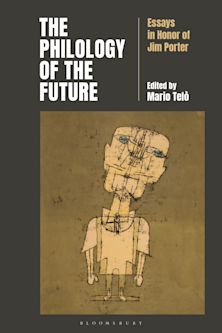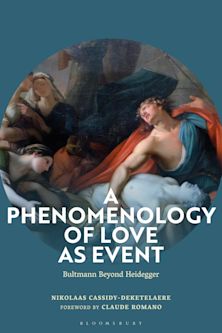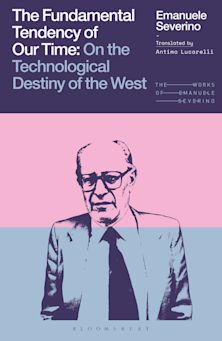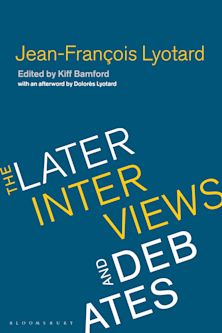- Home
- ACADEMIC
- Philosophy
- Continental Philosophy
- Feminist Theory After Deleuze
You must sign in to add this item to your wishlist. Please sign in or create an account
Description
Feminist Theory After Deleuze addresses the encounter between one of the 20th century's most important philosophers, Gilles Deleuze, and one of its most significant political and intellectual movements, feminism. Feminist theory is a broad, contradictory, and still evolving school of thought. This book introduces the key movements within feminist theory, engaging with both Anglo-American and French feminism, as well as important strains of feminist thought that have originated in Australia and other parts of Europe.
Mapping both the feminist critique of Deleuze's work and the ways in which it has brought vitality to feminist theory, this book brings Deleuze into dialogue with significant thinkers such as Simone de Beauvoir, Rosi Braidotti, Judith Butler, Elizabeth Grosz and Luce Irigaray. It takes key terms in feminist theory such as, 'difference', 'gender', 'bodies', 'desire' and 'politics' and approaches them from a Deleuzian perspective.
Table of Contents
List of Abbreviations
Introduction
Chapter 1: Thought
· Enlightenment Legacies
· Feminism and Liberal Humanism
· Liberating Thought
Chapter 2: Becoming
· Becoming-Woman
· The Girl
· Feminism and the Future
Chapter 3: Desire
· Desire, Psychoanalysis and Experimental Psychiatry
· The Desiring-Machines
· Eroticism
Chapter 4: Bodies
· Sex and Gender
· Sexual Difference
· What Can Bodies Do?
Chapter 5:
· Pure Difference
· Identity and Political Representation
· Intersectional Difference
Chapter 6: Politics
· Recognition and Politics
· Feminism Beyond Recognition
· A Feminism of Imperceptibility
Notes
Bibliography
Index
Product details
| Published | 17 Nov 2016 |
|---|---|
| Format | Ebook (Epub & Mobi) |
| Edition | 1st |
| Extent | 152 |
| ISBN | 9781472533340 |
| Imprint | Bloomsbury Academic India |
| Series | Deleuze and Guattari Encounters |
| Publisher | Bloomsbury Publishing India Pvt. Ltd |
About the contributors
Reviews
-
For students and newcomers to Deleuze, the book's structure and writing style provide a comprehensible primer on concepts that readers will hopefully encounter in a more in-depth manner during their later course of study. What I also appreciated and even enjoyed about the book were the moments when Stark was able to focus on one of Deleuze's texts or concepts and provide a clear and thoughtful explanation of it. Stark knows Deleuze, and this is where her thinking and writing shines so brightly.
Hypatia
-
Hannah Stark's meticulous introduction to key concepts in Deleuze's philosophy explains their relevance for feminist theory and their creative potential for future feminisms, providing a rare combination of analytical clarity, critical authority and theoretical sophistication. Highlighting the novelty of Deleuze's approach to difference and its value for reconceiving political problems and ideas, Feminist Theory after Deleuze is an essential point of reference for academics and students seeking new ways of understanding feminism as a politics of acts rather than identities; an ethics of alliance rather than recognition; and a philosophy of becoming that engenders profound and joyous intersections with alterity.
Simone Bignall, Senior Lecturer in Politics and Policy, Flinders University of South Australia, Australia

ONLINE RESOURCES
Bloomsbury Collections
This book is available on Bloomsbury Collections where your library has access.



































